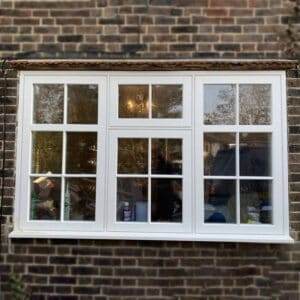It’s important to ensure your R9 units are well-maintained for optimal performance over the years. Implementing regular maintenance can significantly enhance the lifespan of your units, preventing costly repairs and downtime. By following these expert tips, you can keep your systems running safely and efficiently, allowing you to enjoy their benefits for decades to come. Start today to protect your investment and maintain the reliability you expect from your R9 units.
Understanding R9 Units
A comprehensive understanding of R9 units is vital for their efficient use and maintenance. These advanced systems offer remarkable performance and are integral to various applications in today’s technology-driven environment. You can learn more about proper maintenance and operational guidelines by visiting the Security Guidelines for Storage Infrastructure.
Overview of R9 Technology
For many professionals, R9 technology represents a significant advancement in data storage solutions, characterised by its innovative design and high reliability. These units are engineered to optimise storage capacity while ensuring data integrity and fast access times, making them indispensable in various sectors.
Common Applications of R9 Units
Below are some common applications of R9 units, which include data centres, cloud storage solutions, and enterprise resource planning systems. Their capability to handle large volumes of data efficiently makes them ideal for organisations needing robust storage options.
Consequently, R9 units are increasingly adopted in environments where data security and performance are of utmost importance. They serve as the backbone for mission-critical applications such as financial institutions, healthcare, and government databases. By utilising R9 technology, you ensure your operations can manage substantial workloads while maintaining data safety. This capability emphasises their role in achieving integrity and reliability in today’s digital landscape.

Key Factors Affecting Durability
While several elements influence the long-term durability of R9 units, understanding these factors can help you maintain performance over the years. Key considerations include:
- Environmental conditions
- Material quality
- Regular maintenance
This insight can help you identify potential vulnerabilities and ensure your units remain operational.
Environmental Considerations
Above all, the environmental conditions surrounding your R9 units play a significant role in their longevity. Exposure to extreme weather, humidity, or pollutants can accelerate wear and tear, impacting performance and lifespan.
Material Quality and Construction
Against the backdrop of durability, material quality and construction techniques are paramount in ensuring R9 units withstand the test of time. High-grade materials can resist wear, corrosion, and mechanical stresses more effectively.
This means investing in premium materials not only enhances your unit’s strength but also significantly reduces the chances of costly repairs or replacements. Additionally, consider how the unit is assembled; superior construction methods will ensure all components fit properly and function seamlessly. Poor quality or inadequate assembly can lead to premature failure, making it vital to prioritise both materials and craftsmanship in your choice of R9 units.
Maintenance Best Practices
Some best practices for maintaining your R9 units involve establishing a regular routine that encompasses inspections and cleaning. By following these practices consistently, you can greatly enhance the longevity and effectiveness of your equipment. Adhering to these guidelines will ensure your units operate at their best and can save you time and money on major repairs in the long run.
Regular Inspection Protocols
Inspection of your R9 units should be performed on a scheduled basis, ideally monthly or quarterly, to identify any signs of wear or potential issues. Look for loose connections, signs of corrosion, and check the performance metrics. Conducting these inspections early can mitigate risks and help maintain the effectiveness and safety of your units.
Cleaning and Upkeep Techniques
Cleaning your equipment regularly is important for maintaining optimal performance. A lint-free cloth and appropriate cleaning solution can effectively remove dirt and debris from surfaces. Pay special attention to areas that are prone to dust accumulation, as this can hinder functionality. Additionally, make sure to check filters and replace them as needed to ensure uninterrupted airflow and efficient operation.
A thorough upkeep routine will include not just surface cleaning but also inspecting and maintaining components that are easily overlooked. Ensure you periodically lubricate moving parts to reduce friction and wear. Always use manufacturer-recommended cleaning agents to avoid damaging your units, and diligently check for any signs of build-up or corrosion that can lead to larger problems. Following these techniques will help you maintain a reliable and efficient operation over the years.
Lubrication and Moving Parts
Despite the robust design of R9 units, regular lubrication is necessary to ensure the longevity and smooth operation of moving parts. Neglecting this aspect could lead to increased friction, wear and tear, ultimately compromising the unit’s performance and lifespan. By integrating a consistent lubrication routine into your maintenance schedule, you can prevent potential failures and keep your equipment functioning optimally for years.
Importance of Proper Lubrication
Between the complexities of mechanical systems and the constant movement of components, proper lubrication acts as a protective barrier, reducing wear and enhancing efficiency. Adequate lubrication not only minimises friction but also helps in dispersing heat, which can otherwise lead to overheating and premature failure of parts. Prioritising this practice can save you significant time and costs in repairs.
Best Lubricants for R9 Units
Best practices dictate that you choose lubricants specifically formulated for R9 units. Look for options that provide excellent adhesion, corrosion resistance, and temperature stability to withstand variable working conditions. Selecting the right lubricant will contribute to optimal performance and extend the service life of your equipment.
It is necessary to consider the type of lubricant you use for your R9 units. High-quality, synthetic lubricants are often recommended due to their superior performance in extreme temperatures and enhanced wear protection. Additionally, grease-based lubricants that offer excellent adherence to moving parts can prevent the loss of lubrication under load. Always consult the manufacturer’s guidelines to ensure compatibility and effectiveness, as the wrong lubricant can lead to serious damage and increased maintenance costs.

Troubleshooting Common Issues
Unlike many appliances, R9 units can exhibit specific problems that may affect their performance. Regular troubleshooting is vital for maintaining their efficiency. Be attentive to unusual noises, fluctuating temperatures, or leaks, as these symptoms may indicate underlying issues. By addressing these concerns promptly, you can prevent more severe complications and ensure your unit continues to operate smoothly.
Identifying Early Signs of Wear
Between routine checks, it’s vital to be aware of early signs of wear on your R9 units. Look for signs such as diminished airflow, strange odours, or visible rust. If you notice any of these indicators, it’s important to take action quickly to avoid more extensive damage in the future.
Solutions for Frequent Problems
One effective method for addressing frequent problems is to implement regular maintenance routines. This includes cleaning filters, checking for blockages, and ensuring proper insulation. It is also advisable to perform periodic inspections to catch wear and tear before they develop into major issues.
But should a problem arise, don’t hesitate to consult a professional technician for further investigation and repairs. The *most important* steps you can take to mitigate risks involve routine servicing and *staying alert* to warning signs. By doing so, you can extend the life of your R9 units and maintain their *optimal performance*. Prioritise regular checks, and you will ensure a more *positive and hassle-free* experience in the long run.
Upgrades and Retrofitting
For maintaining your R9 units, upgrades and retrofitting can significantly enhance performance and extend operational life. Implementing PRC-012-2 – Remedial Action Schemes can also optimise their functionality and reliability in various operational scenarios, ensuring you stay compliant with the latest industry standards.
Enhancements for Extended Lifespan
To maximise the lifespan of your R9 units, consider incorporating advanced materials and components designed to withstand wear and tear. Upgrading systems with more efficient technology can reduce strain and improve overall performance, ensuring your units remain reliable for years to come.
Future-proofing Your R9 Unit
Unit upgrades not only enhance performance but also prepare you for future advancements in technology. By investing in adaptable components, you can seamlessly integrate new features as they become available, keeping your R9 units relevant and efficient.
Due to the rapid pace of technological advancement, future-proofing your R9 unit is necessary for maintaining a competitive edge. By prioritising upgrades that allow for easy integration of new technologies, you minimise operational disruptions and ensure your unit remains at peak performance. Regular assessments of your unit’s capabilities can also help identify potential improvements, allowing you to implement necessary changes proactively and sustain a high level of efficiency and reliability throughout its lifespan.
Final Words
Drawing together your knowledge of long-term durability and maintenance tips, you can ensure that your R9 units remain in top condition for decades to come. Regular inspections and timely servicing will help to identify any potential issues before they escalate. Staying informed about best practices and following guidelines from reliable sources, such as article 10. outpatient treatment centers, will further enhance your approach. Prioritising maintenance is key to achieving longevity in your equipment’s performance.
FAQ
Q: What is the expected lifespan of R9 units and how can I ensure they last longer?
A: The lifespan of R9 units is typically around 20 to 30 years, depending on the usage and maintenance. To ensure they last longer, it is crucial to perform regular inspections and conduct necessary maintenance, such as cleaning filters, checking for leaks, and ensuring that all components are functioning correctly. Keeping the units free from debris and scheduling professional servicing can also extend their operational life.
Q: How often should I conduct maintenance on my R9 units?
A: Maintenance on R9 units should ideally be performed at least once a year. However, if the units are subjected to heavy use or adverse conditions, it is advisable to conduct maintenance bi-annually. Regular checks of the components, including filters, seals, and electrical connections, can significantly enhance performance and prevent potential issues down the line.
Q: What specific maintenance tasks should I perform on my R9 units?
A: Key maintenance tasks include cleaning or replacing air and water filters, lubricating moving parts, checking the insulation and seals for wear, and inspecting electrical connections for corrosion. Additionally, ensure that the drainage systems are clear of blockages and that there are no leaks in the pipes. Keeping a maintenance log can help track these tasks and identify any recurring issues.
Q: Are there any signs that indicate my R9 unit needs immediate attention?
A: Yes, some signs that may indicate your R9 unit needs immediate attention include unusual noises during operation, reduced efficiency, water leaks, or fluctuating temperature control. Any noticeable changes in performance, such as increased energy consumption or failure to maintain desired temperature levels, should prompt a professional inspection.
Q: Can I perform maintenance on my R9 units myself, or should I hire a professional?
A: While there are basic maintenance tasks that homeowners can perform, such as cleaning filters or checking for visible issues, it is recommended to hire a professional for more complex tasks. Professionals have the expertise and tools required to perform a thorough inspection and maintenance, ensuring that the unit operates safely and efficiently for years to come.









